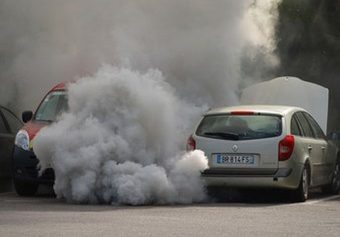
The city of Stuttgart in Germany will be home to occasional selective bans of diesel cars during periods of high pollution beginning in 2018, going by a recent announcement from state officials in Baden-Württemberg.
The intent of the selective-ban introduction is to limit diesel pollution within the state’s capital city during periods when air pollution levels are already quite high.
To be more clear on this count, not all diesel cars will be affected by the selective ban, just those that don’t meet the Euro 6 emissions standards that were introduced in 2014. As it stands, though, only around 1 in 10 diesel cars on Germany’s roads meets Euro 6 standards — so the selective ban will cover most of the diesel cars in the country.
Here’s more on the subject from Germany:
“Stuttgart, an industrial city located in the bowl-shaped Neckar valley, regularly reports particulate levels from diesel vehicles above the EU’s designated safe levels.
“Officials said speed limits would also be tightened, public transport improved and new cycle lanes introduced in the 600,000 population city.
“Stuttgart, which is home to German automakers Mercedes-Benz and Porsche, last issued an air pollution alert on January 9, when 78 micrograms per cubic meter of fine particulates was recorded in the city’s air. EU regulations set the limit at 50 micrograms.”
The decision to implement a selective ban on diesel cars follows on an attempt to introduce “a system of blue badges for low-polluting vehicles.” That plan, though, was met with a lot of resistance, apparently.
Notably, Germany has been warned by EU regulators multiple times in recent years about its relatively high air pollution levels (in some regions), which are primarily the result of the widespread use of diesel cars in the country.
To be more specific, the European Commission has threatened the imposition of fines after finding that air pollution levels regularly exceed EU limits in 28 regions of the country, including in Munich, Berlin, Cologne, and Hamburg.
Source: cleantechnica.com

